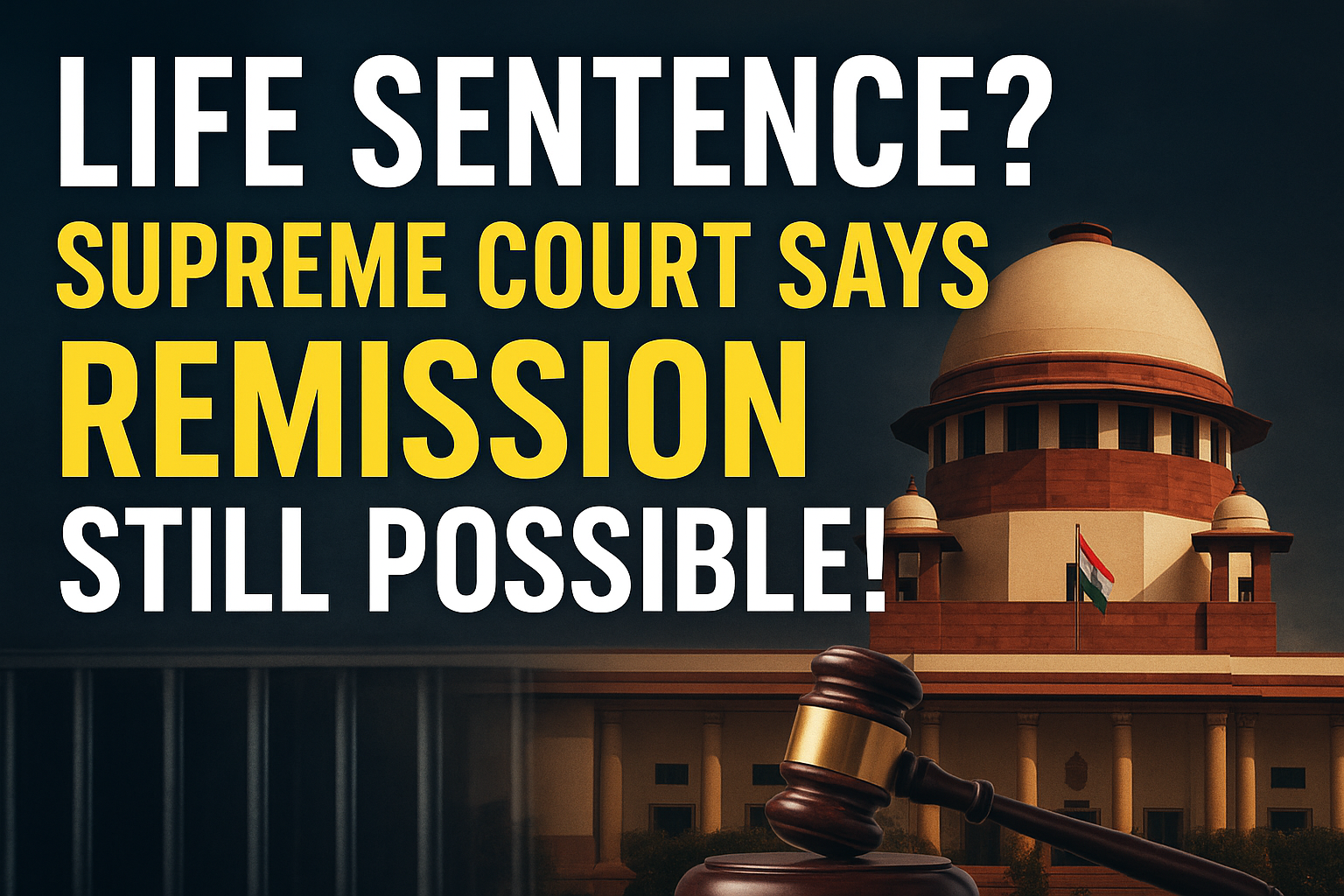Introduction
The Supreme Court of India in the case of Mahendra Vishwanath Kawchale vs Union of India clarifies that even if someone is sentenced to spend the rest of the life in prison then also, they can ask for remission and added that the remission is not just a special favour but a legal and constitutional rights. This means that no matter how harsh the punishment is a convict can ask for relief from the proper authorities.
Understanding life imprisonment in Indian Law
There are some crimes and certain provisions that impose life imprisonment for heinous crimes in mandatory terms such as
1. Section 375(3) BNS: Gangrape of a girl below 16 years of age.
2. Section 375(4) BNS: Gangrape of a girl below 12 years of age.
These provisions require that the offender shall be punished with imprisonment for life which means imprisonment for the remainder of that person’s natural life.
Supreme Court Observations
The Supreme Court of India clarifies that the remission is available even in the mandatory life sentences also stated the source of right
1. Constitutional Remedies
- Article 72 of the Constitution gives the president of India the power to pardon someone, reduce their punishment or grant remission.
- Article 161of the Constitution gives the same kind of powers to a state governor.
2. Statutory Remedies
Bhartiya Nagarik Suraksha Sanhita (BNSS), Section 473 provides for remission and commutation of sentences.
Unresolved Question
The Supreme Court of India while affirming the right to remission. One question left behind is whether mandatory sentencing without judicial discretion is constitutionally valid. This issue remains unsolved and will take lots of debate in future cases. The court added that the remission is a legal right, but it is not automatic. Each application must be assessed based on state remission policies, nature of the Act done and other concerned issues.
Conclusion
The Supreme Court Decision must leave some unresolved questions, but it is a powerful reminder that justice must balance punishment with humanity as the right to remission is for convicts sentenced to life imprisonment for the remainder of their life the court stressed on whether the constitutional compassion is not overshadowed by statutory rigidity. The court safeguard the delicate balance between retribution, deterrence and reform in India’s criminal justice system.
About the Author
Tushar Kumar is a final-year BBA-LLB student at Guru Gobind Singh Indraprastha University. With a strong interest in Intellectual Property Rights, he enjoys exploring how law interacts with innovation and creativity. He’s equally passionate about legal writing, Research and believes in making complex legal ideas easier to understand through clear articles. Tushar continues to deepen his understanding of the law while contributing thoughtful pieces on contemporary legal issues.

